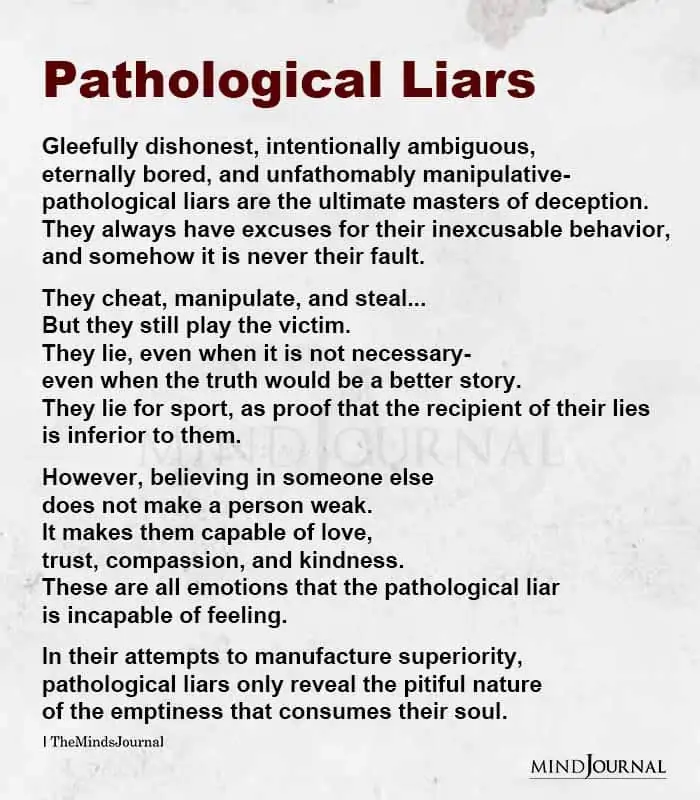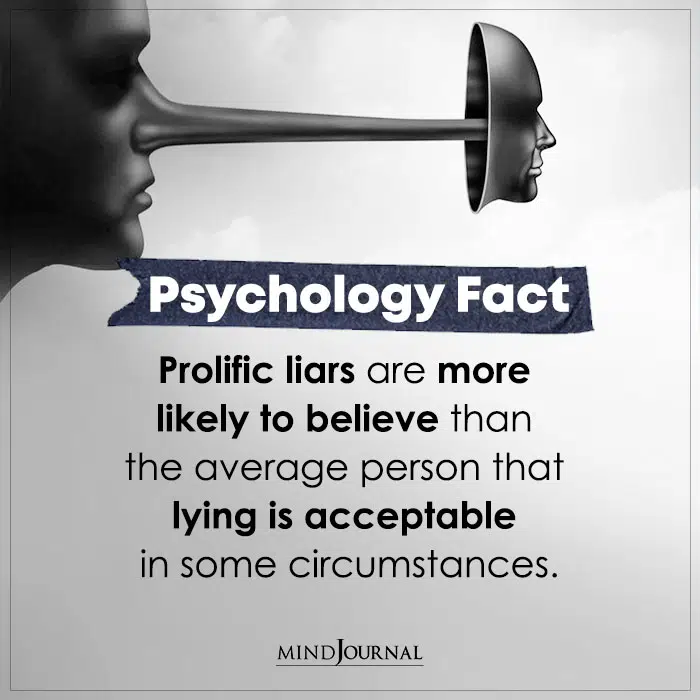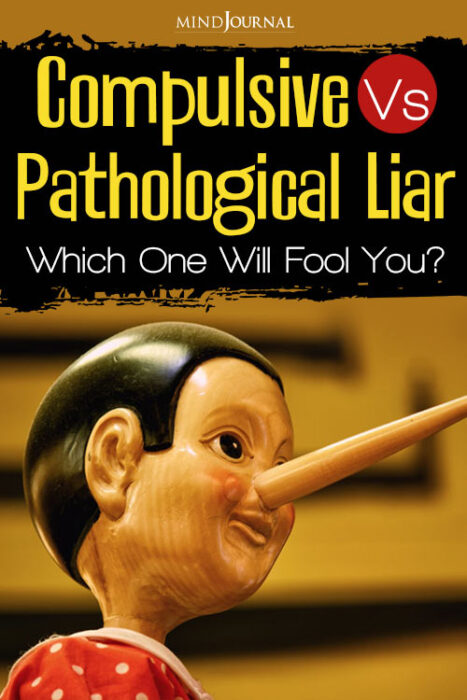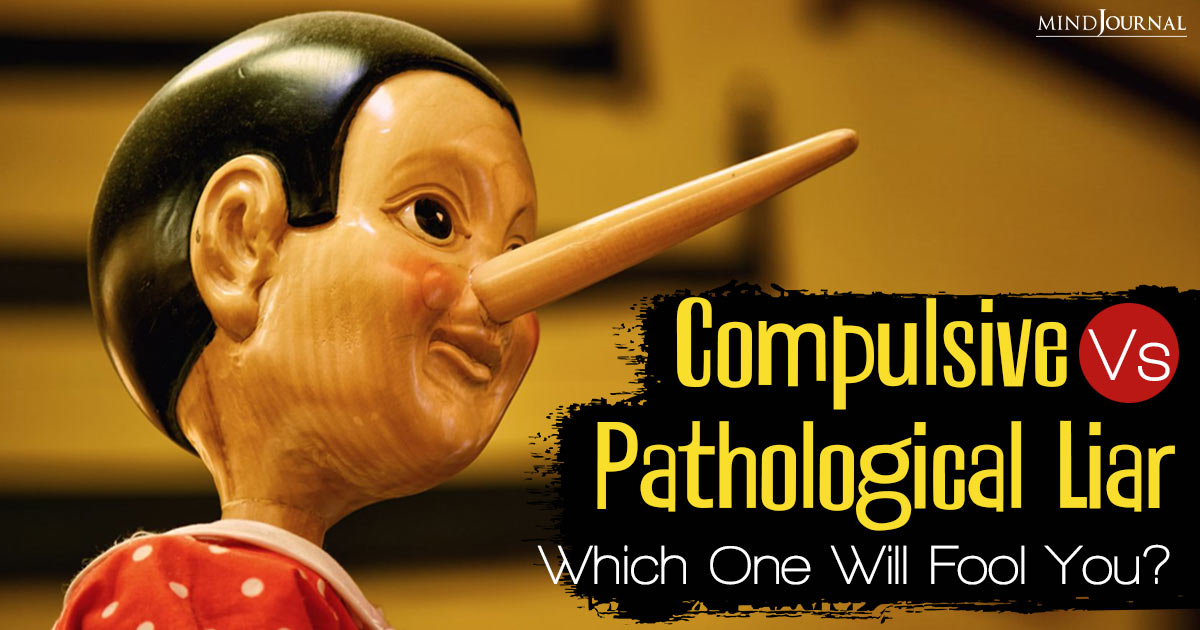Ever wondered what sets apart the compulsive truth-benders from the master manipulators? Let’s explore the reality of compulsive vs pathological liar, where truth blurs into fiction.
Have you ever met someone who effortlessly weaves a web of lies, leaving you bewildered and questioning their credibility? Dealing with individuals who have a knack for lying repeatedly can be incredibly challenging.
Today, we will delve into the intriguing world of compulsive and pathological liars—two distinct categories of individuals who struggle with honesty. So, let’s unravel the intricacies of their behaviors, motivations, and the impact they have on those around them.
What Does a Compulsive Liar Mean?
A compulsive liar habitually fabricates false accounts of narratives, often without a clear motive, blurring the line between truth and fiction in their everyday interactions.
But what does a compulsive liar mean exactly? Imagine a friend who habitually embellishes their stories, exaggerates their accomplishments, or even fabricates entire events. Such individuals are often referred to as compulsive liars. At the core of their behavior lies an irresistible impulse to deceive, even when the situation doesn’t warrant it.
Compulsive liars often resort to falsehoods to boost their self-esteem, gain attention, or avoid facing the consequences of their actions. Their lies may seem harmless at first, but over time, they can erode trust and strain relationships.
It’s crucial to recognize that compulsive lying is driven by a compulsion – an irresistible urge that they find difficult to control.
Related: The Science Of Lying: 9 Things You Should Know About Liars
What Does a Pathological Liar Mean?

Unlike compulsive liars, pathological liars take deception to a whole new level. Researchers define pathological lying as “falsification entirely disproportionate to any discernible end in view, may be extensive and very complicated, manifesting over a period of years or even a lifetime, in the absence of definite insanity, feeblemindedness or epilepsy.”
So what does a pathological liar mean? A pathological liar is an individual who chronically and compulsively fabricates accounts, often without regard for consequences or reality, due to underlying psychological reasons.
Their fabrications are intricate, elaborate, and often involve weaving a complex web of falsehoods. Pathological lying is not a mere habit; it’s a pervasive pattern of behavior deeply ingrained in the individual’s psyche.
Pathological liars tend to lie compulsively, without any apparent external motivation. They may create grandiose stories, manipulate others for personal gain, or deceive merely for the thrill of it.
Unlike most people, who experience guilt or remorse after lying, pathological liars may not exhibit these emotions, further blurring the line between truth and fiction.
Compulsive vs Pathological Liar: Differentiating the Patterns
While both compulsive liars and pathological liars share a propensity for deception, there are key distinctions that set them apart. Understanding the details of compulsive vs pathological liar can shed light on their behaviors and help us navigate our interactions with them more effectively.
1. Motivation
The driving force behind compulsive lying is often a desire for attention, social acceptance, or a fear of negative consequences.
Pathological liars, on the other hand, lie habitually, seemingly for no apparent reason, making it challenging to pinpoint a specific motivation.
2. Frequency and Severity
Compulsive liars tend to lie more frequently in social situations, where they feel the need to impress others or avoid embarrassment.
Pathological liars, however, lie more consistently and extensively, often weaving intricate narratives that are difficult to unravel.
3. Emotional Response
Compulsive liars may experience guilt, remorse, or anxiety after lying, as they are aware of their deceptive tendencies.
In contrast, pathological liars often exhibit a lack of emotional response or show indifference towards the consequences of their lies.
Related: Habitual Liars And Their Agendas
4. Self-Awareness
Compulsive liars are typically conscious of their lying behavior and may even feel a sense of shame or embarrassment.
Pathological liars, on the other hand, may exhibit a lack of self-awareness, genuinely believing their fabrications to be true.
Now that we know more about compulsive vs pathological liar, let’s find out how it may affect our relationships.

The Impact on Relationships
Both compulsive and pathological lying can have detrimental effects on personal relationships, eroding trust and causing emotional distress. The constant deception can leave friends, family, and partners questioning the authenticity of every interaction, leading to a breakdown in communication and intimacy.
For compulsive liars, the constant need to embellish or fabricate stories can create a sense of confusion and frustration among their loved ones. It becomes challenging to discern reality from fiction, resulting in strained relationships and emotional exhaustion.
Pathological liars, with their intricate and manipulative lies, can cause even greater harm. Their deception often serves to exploit others or manipulate them for personal gain. This can lead to profound feelings of betrayal and a profound loss of trust among those who have fallen victim to their intricate web of falsehoods.
Takeaway
Dealing with individuals who engage in compulsive or pathological lying can be emotionally draining and challenging. Recognizing the patterns and understanding the motivations behind their behavior can help us navigate these complex relationships with greater compassion and empathy.
By fostering open communication, setting boundaries, and encouraging professional help when needed, we can support individuals struggling with these patterns while safeguarding our own emotional well-being.
Remember, honesty and trust are the foundations of healthy relationships, and it’s essential to surround ourselves with people who value and uphold these principles.
Related: How To Spot A Liar? 7 Signs Someone Is Lying To You
Frequently Asked Questions (FAQs):
What’s the difference between pathological liar and compulsive liar?
Pathological liars lie with intent and manipulation, while compulsive liars lie impulsively without clear motives or manipulation.
Is pathological lying a form of OCD?
Pathological lying is not typically a symptom of OCD, but it can be associated with various personality and mood disorders.
What mental illness makes you a compulsive liar?
Compulsive lying can be linked to conditions like borderline personality disorder or antisocial personality disorder.
Do pathological liars know they are lying?
Pathological liars may believe their lies, while others may knowingly lie for personal gain or manipulation purposes.









Leave a Reply
You must be logged in to post a comment.